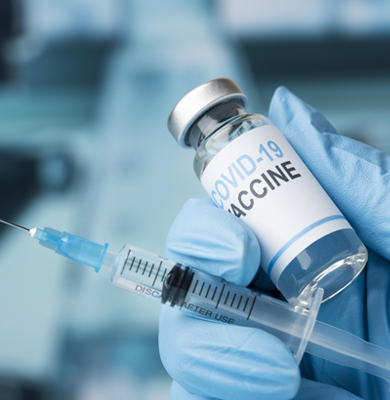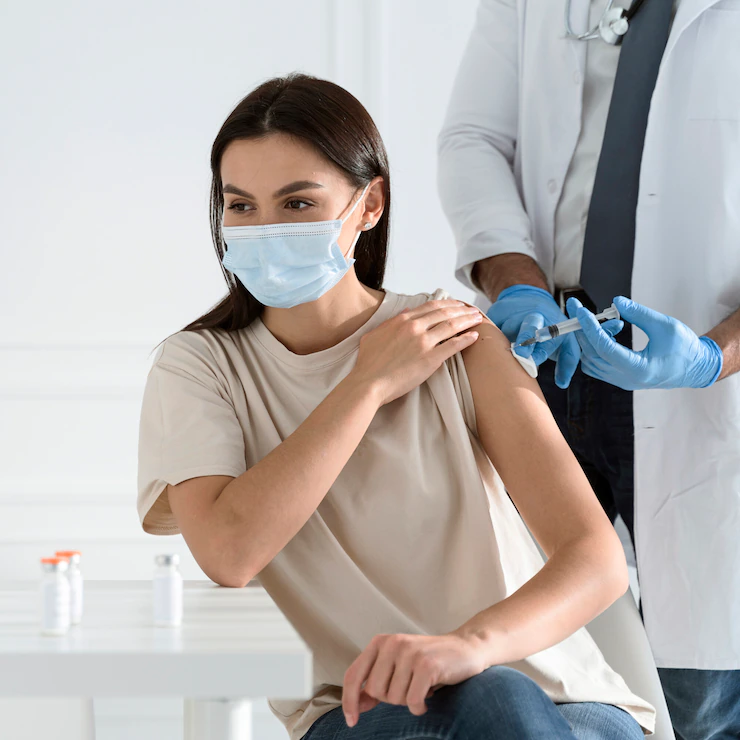Better Vaccinated Communities Have 80% Lower Deaths From COVID-19

Ever since the concept of immunization was invented by Edward Jenner in 1796, vaccines have stood as our most effective line of defense against dangerous pathogens. When COVID-19 began to spread in early 2020, the importance of developing a vaccine against the virus as quickly as possible was well understood.
Fortunately, the medical community was able to create COVID-19 vaccines in record time, undoubtedly saving untold amounts of lives thanks to their hard work and uncompromising commitment. Unfortunately, vaccine hesitancy has prevented many people from taking these vaccines.
The vaccines are readily available, and, in a perfect world, we would have already achieved a near 100% vaccination rate. As it stands, though, just 66.8% of the US population is currently fully vaccinated against COVID-19.
In some communities, this number is higher than in others – and according to a new study published by the British Medical Journal, communities with high vaccination rates report 80% fewer deaths from COVID-19.
Key Findings From the New COVID-19 Vaccine Study
To measure the efficacy of COVID-19 vaccines, researchers examined data from 2,558 counties in 48 US states. Their findings revealed that counties with a high vaccination rate report 80% fewer deaths due to COVID-19 than counties that are largely unvaccinated. These findings highlight a truth that medical experts have known for a long time – that vaccination is highly effective at preventing serious complications due to COVID-19.
How Does the COVID-19 Vaccine Work?
There are three variations of COVID-19 vaccines available to the public, but they all work essentially the same way. Like any other vaccine, COVID-19 vaccines work by “teaching” the body’s immune system how to fight the virus. When exposed to the SARS-Cov-2 virus responsible for COVID-19, the immune system produces antibodies designed to kill the virus and stop it from spreading to healthy cells. By ensuring that these antibodies are already in place and ready to do their job the moment a person is exposed to the SARS-Cov-2 virus, COVID-19 vaccines give the immune system a potentially life-saving headstart and work to ensure that the virus will be defeated before it has a chance to cause serious symptoms.

In many cases, vaccines entail injecting the patient with a weakened version of the pathogen that they are being inoculated against. Rather than containing a live virus, though, COVID-19 vaccines contain a small portion of genetic material from the SARS-CoV-2 virus that instructs cells to create only a single, harmless protein that is unique to the SARS-CoV-2 virus. However, exposure to just this one protein is enough to teach the immune system how to combat the real SARS-CoV-2 virus in the event that the patient is exposed to it. By exposing a patient to just this one protein rather than a live virus, COVID-19 vaccines are able to protect against serious illness without the risk of someone contracting COVID-19 themselves and/or spreading it to others due to receiving the vaccine.
How to Schedule an Appointment for COVID-19 Testing With St. Jude Labs
Regardless of whether or not you are vaccinated against COVID-19, it is still essential to take a COVID-19 test if you are experiencing COVID symptoms. While COVID-19 vaccines do help prevent the spread of the virus by reducing the viral load that your body produces, this is not their primary purpose, and it is still certainly possible to spread COVID-19 to others even if you are vaccinated. For this reason, COVID-19 testing remains a vital healthcare service, enabling those who are experiencing COVID symptoms to determine if they are infected with the virus so that they can take measures to prevent spreading it to others. At St. Jude Labs, we are proud to offer both PCR COVID testing to determine if you are currently infected with the virus as well as antibody testing to determine if you have been exposed to the virus at any point in the past. To schedule an appointment for COVID-19 testing from St. Jude Labs, feel free to contact us today.


